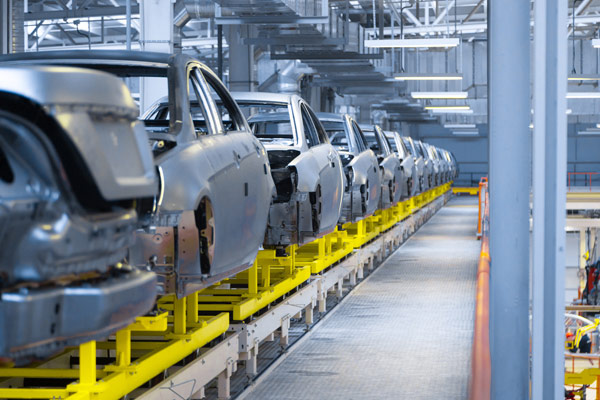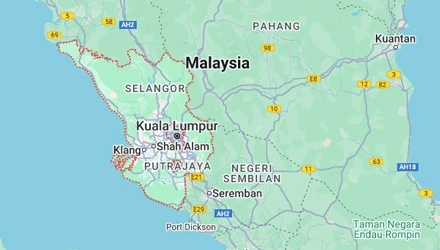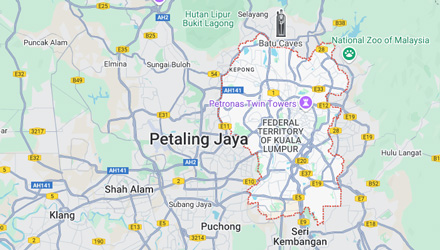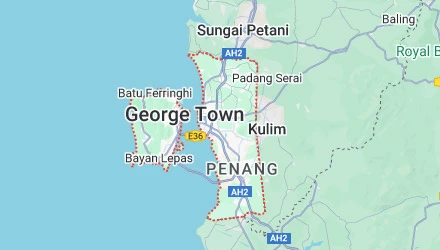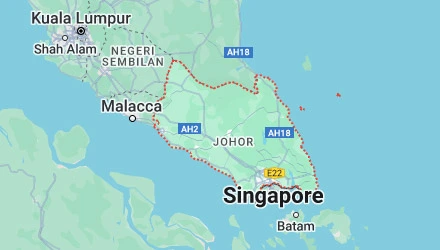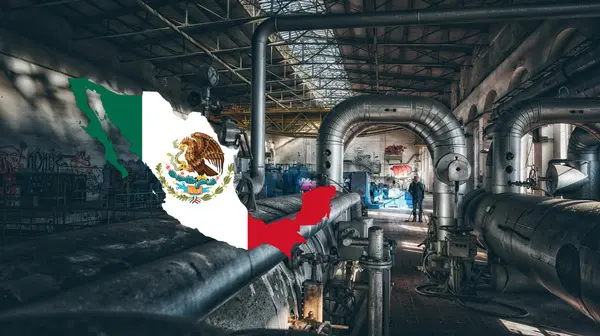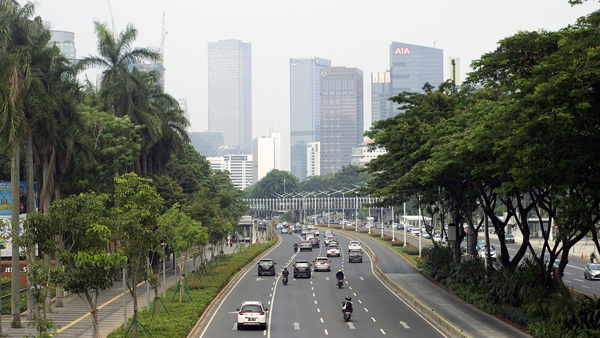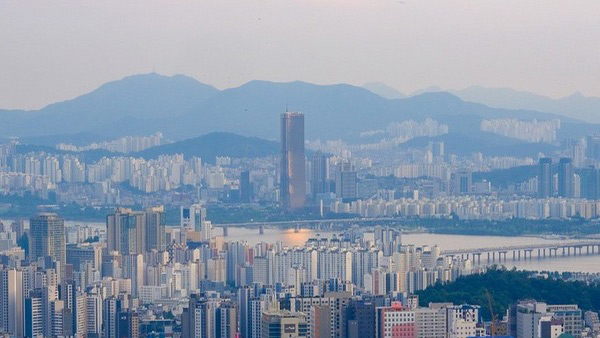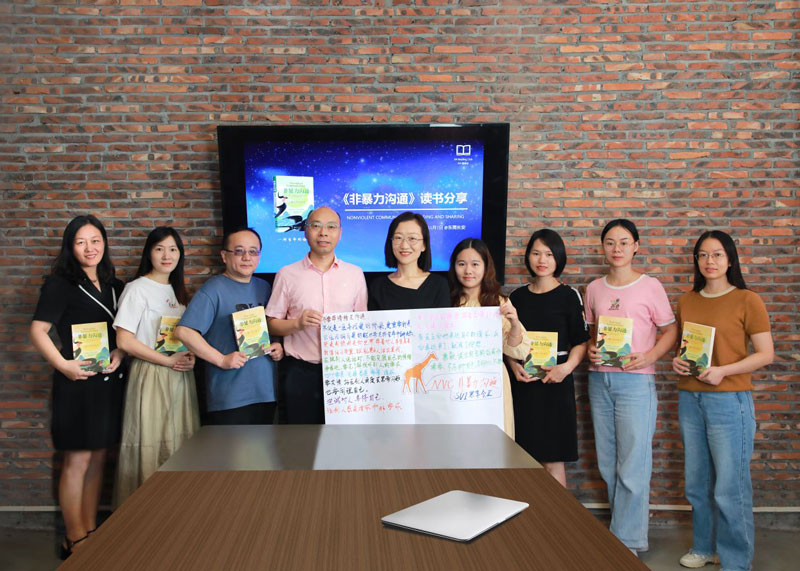The Insider's Guide to Sourcing in Malaysia
- Date:
- Author: SVI Content Team
- Share:
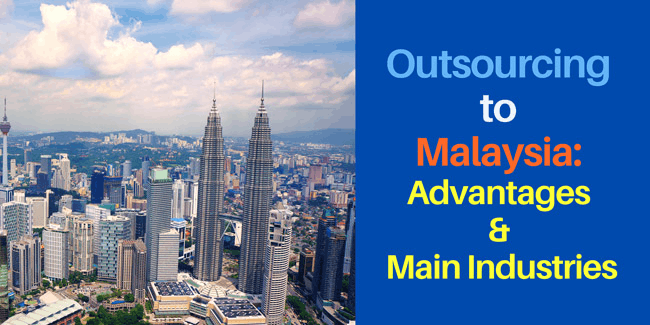
Malaysia has steadily climbed the ranks to become a manufacturing hub in Southeast Asia. Its rapid development, coupled with a stable political environment and robust infrastructure, has caught the attention of businesses worldwide.
So, what drives the country to grow? What are the main industries in Malaysia? We’ll present you with things you want to know when outsourcing to Malaysia, including the advantages, challenges, and key industrial regions in Malaysia. Ready to discover the manufacturing picture there?
Part 1. Why Do We Outsource to Malaysia?
Malaysia is one of the most powerful countries in Southeast Asia. Its development and stable economy attract lots of companies outsourcing and investment, especially in the manufacturing sector. That brings out the question: What are Malaysia’s advantages?
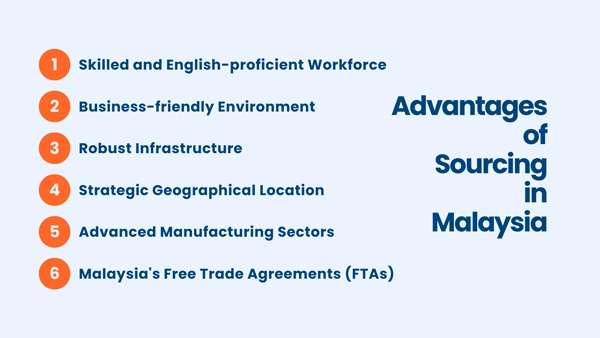
1. Skilled and English-proficient Workforce
Malaysia stands out in Southeast Asia for its English proficiency, ranking third in the region. Approximately 50% of the population is capable of communicating in English, which facilitates smoother business interactions and reduces potential language barriers.
2. Business-friendly Environment
Globally recognized for its conducive business environment, Malaysia ranks 12th in the world for ease of doing business. The nation’s transparent regulations, streamlined processes, and supportive government policies make it an attractive destination for foreign investments and manufacturing setups.
3. Robust Infrastructure
With over 500 industrial parks and zones spread across the country, businesses have vast options to set up their operations. Furthermore, the country invests in improving logistics networks and infrastructure development to ensure efficient transportation of export goods.
4. Strategic Geographical Location
Along the Strait of Malacca and bordering economic hubs like Singapore, Thailand, and Indonesia, it serves as a crucial maritime transit point. The country has 7 federal administrated ports, the largest one being Port Klang. This positioning not only facilitates easy access to these markets but also ensures on-time delivery with efficient shipping routes to other countries.
5. Advanced Manufacturing Sectors
There are three pillars that dominate the manufacturing sector: electronics and electrical products, machinery and equipment, and chemicals. The nation’s prowess in these areas has led to high-quality production standards, attracting businesses that prioritize quality and innovation.
6. Malaysia’s Free Trade Agreements (FTAs)
Malaysia has bilateral FTAs with nations including Australia, Chile, India, Japan, New Zealand, Pakistan, and Turkey. What’s more, as a member of the Association of Southeast Asian Nations (ASEAN), the agreements, known as ASEAN+1 FTAs, expand the trade horizons for Malaysia.
These all help businesses with reduced trade barriers and access to broader markets.
Part 2. What Are the Main Industries in Malaysia Manufacturing
Manufacturing is one of Malaysia’s biggest industries and largely contributes to the country’s development and attracts capital. What is exported from Malaysia? According to statistics from Malaysian Investment Development Authority (Mida), below are the top 5 exports in the Malaysian industry in 2024.
- E&E Products (Electrical and Electronic Products)
- Petroleum Productsr
- Palm Oil
- Chemical Products
- Machinery, Equipment & Parts
Three Key Sub-Sectors in Malaysia Manufacturing
1. Electronics and Electrical Products
Malaysia has carved a niche for itself in the global electronics and electrical market. In 2024, the E&E sector accounted for 39.9% of Malaysia’s total exports, valued at RM601.18 billion, making it the country’s largest manufacturing sub-sector. The sector’s strengths lie in semiconductors, integrated circuits, and consumer electronics such as televisions and radios. Additionally, Malaysia is a major producer of solar panels and renewable energy components, reinforcing its role in the clean energy transition. With leading multinational corporations setting up production facilities in Malaysia, the sector benefits from a highly skilled workforce, advanced technology infrastructure.
2. Chemicals and Petrochemical Products
The machinery, equipment & parts sector in Malaysia is diverse and expansive. It encompasses the production of specialized machinery for various industries, including agriculture, construction, and mining.
With an export value of RM69.04 billion in 2024, this manufacturing sub-sector contributes a 4.6% share of the total export value. It is expected to grow in the global industrial market with the rise of Industry 4.0, automation, and smart manufacturing.
3. Machinery and Equipment
One main industry in Malaysia is chemical and chemical products. The country produces a broad spectrum of chemicals, from basic petrochemicals like ethylene and propylene to specialty chemicals used in various industries. In 2024, this industry contributed RM73.57 billion in exports, representing 4.9% of total export value.
To further strengthen the industry, Malaysia’s Chemical Industry Roadmap 2030 (CIR2030) targets increasing the industry’s gross value added (GVA) to the overall economy from 3.4% to over 4.5% by 2030. This translates to approximately RM40 billion in added value to the Malaysian economy.
Part 3. Major Industrial Areas in Malaysia
Here’s a list of industrial areas in Malaysia for your reference when developing your sourcing strategies:
1. Selangor
Often referred to as the industrial heartland of Malaysia, Selangor, on the west coast of Peninsular Malaysia, is not just the richest state in terms of GDP but also the most developed.
The state is home to a myriad of industries, ranging from electronics and machinery to chemical products and automotive. Its infrastructure is top-notch, with numerous industrial parks, a well-connected transportation network, and proximity to Malaysia’s primary port, Port Klang.
2. Kuala Lumpur
Kuala Lumpur, the capital of Malaysia, stands as the country’s economic heart. It is the largest city and provides excellent connectivity, a skilled workforce, and a thriving business environment.
The industrial sector benefits from its strategic location, well-developed industrial zones, and proximity to the port (Port Klang) and airport (Kuala Lumpur International Airport).
Kuala Lumpur and its surrounding areas such as Shah Alam, Petaling Jaya, Subang Jaya, Klang, etc., make up a significant manufacturing region called Klang Valley, a prime location for companies to invest.
3. Penang
Known as the ‘Silicon Valley of the East’, Penang’s geographical location on the northwest coast of Peninsular Malaysia, along the Strait of Malacca, gives it a strategic advantage for trade and shipping. The state is a hub for electronics and electrical manufacturing, housing several tech giants and semiconductor companies.
Its Free Industrial Zones, particularly in Bayan Lepas, have attracted a significant amount of foreign direct investment.
4. Johor
Situated at the southern tip of Peninsular Malaysia, Johor is the third largest state of the country’s GDP. With its proximity to Singapore, Johor is a hub for electronics, petrochemicals, and machinery.
The Iskandar Malaysia development corridor in Johor is a testament to its rapid industrial growth, attracting both local and international investors with its modern infrastructure and business-friendly policies.
Part 4. Challenges of Manufacturing in Malaysia
1. Uncompetitive Labor Costs
While Malaysia’s workforce is skilled, its labor costs are higher compared to countries like Vietnam or Indonesia, which may affect cost-sensitive businesses.
The monthly minimum wage:
🇲🇾 Malaysia: MYR 1,500 (US$337)
🇻🇳 Vietnam: VND 3,450,000 to 4,960,000 (ranging from US$135 to US$195)
🇮🇩 Indonesia: IDR 2,036,000 to 5,067,000 (ranging from US$127 to US$317)
2. Limited Labor Availability
Despite its skilled population, Malaysia faces challenges related to the availability of labor. In 2023, the population of Malaysia is about 34 million, while the total labor force is 17 million. It is limited by population base, especially when compared to larger Southeast countries like Vietnam (approx. 98.86 million) or Indonesia (approx. 277.5 million).
FAQ about Outsourcing to Malaysia
Q1. Trends of Malaysia Manufacturing Development
Economists remain optimistic towards the manufacturing sector in Malaysia, but still, the global uncertainties cast a shadow on the growth and export outlook.
Tariffs under the new U.S. administration:
- Potential US Reciprocal Tariffs: The government plans for new reciprocal tariffs that could boost America’s revenue. If introduced, these tariffs could give Malaysia a competitive edge due to its lower Most Favored Nation (MFN) tariff rate compared to other ASEAN countries. However, sectors heavily reliant on U.S. exports, such as technology, may face challenges.
- Risk of 10% Universal US Tariffs: A global tariff on all US imports could slow down major economies, reducing demand for Malaysian exports and impacting manufacturing and commodity sectors.
- Risk of 25% tariffs on Automotive, Semiconductor and Pharmaceutical Imports: The U.S. president has said he will impose around 25% tariffs on these imports. Since electrical and electronics (E&E) products account for 60% of Malaysia’s trade with the U.S., this could pose a significant challenge.
Q2. Is Outsourcing to Malaysia a Viable Choice in 2025?
Malaysia remains an attractive outsourcing destination due to its strong manufacturing growth and strategic position in global trade. According to the report from the Department of Statistics Malaysia (DOSM):
- The sales value of Malaysia’s manufacturing sector reached RM1.9 trillion in 2024, reflecting a 4.6% increase from 2023 (which saw a modest 0.2% growth).
- In December 2024 alone, manufacturing sales hit RM158.4 billion, marking a 5.7% year-over-year growth.
The growth of Malaysian GDP in 2024 was 5.1%, in line with government forecasts (4.8%-5.3%) and improving from 3.6% in 2023.
Outside of the potential tariffs, analysts believe that Malaysia is unlikely to be a direct target for U.S. tariffs due to its relatively small share in U.S. trade. And the turbulence in the global supply chain continues to push companies to diversify their manufacturing locations and expand into ASEAN countries, which makes Malaysia a key beneficiary.
Part 5. How to Overcome the Challenges with SVI Global
While pondering where to source your products, outsourcing to Malaysia is a great option, as it is a rising and competitive manufacturing hub. Positioned in Southeast Asia, Malaysia is well-placed to connect with global markets. Its exports, such as semiconductors and electronics, are prime examples of its manufacturing prowess.
Besides the FTAs, strong infrastructure, experienced workforce and business-friendly environment, Malaysia stands out as a preferred choice for global companies looking to optimize manufacturing and sourcing operations.
The global supply chain is turbulent, and filled with uncertainties. SVI Global, as a Malaysia sourcing agent in this field for decades, we have the deep expertise in not only helping you do sourcing in Malaysia but importantly, can reduce the sourcing risks by diversifying your supply chain in other countries like Vietnam, Indonesia or Mexico if you do.
Start Outsourcing to Malaysia with SVI Global
Step 1. Initial Consultation: Contact us via our website, email, or phone to discuss your needs and how SVI can help.
Step 2. Analyze Your Project Requirements: We assess your requirements and challenges to tailor our approach.
Step 3. Create Proposal and Plan: SVI provides a customized proposal with service scope, timelines, and cost estimates.
Step 4. Build Partnership through Agreement: Once aligned, we formalize our collaboration with a service agreement.
Step 5. Project Kick-off: Our SVI team launches the project and keeps you informed every step of the way.



